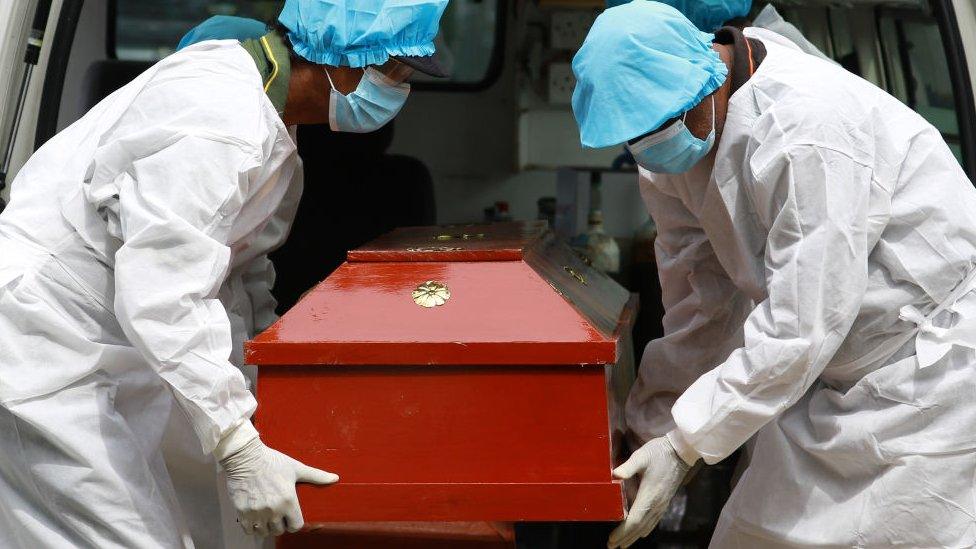Sri Lanka to ban burka and other face coverings
- Published
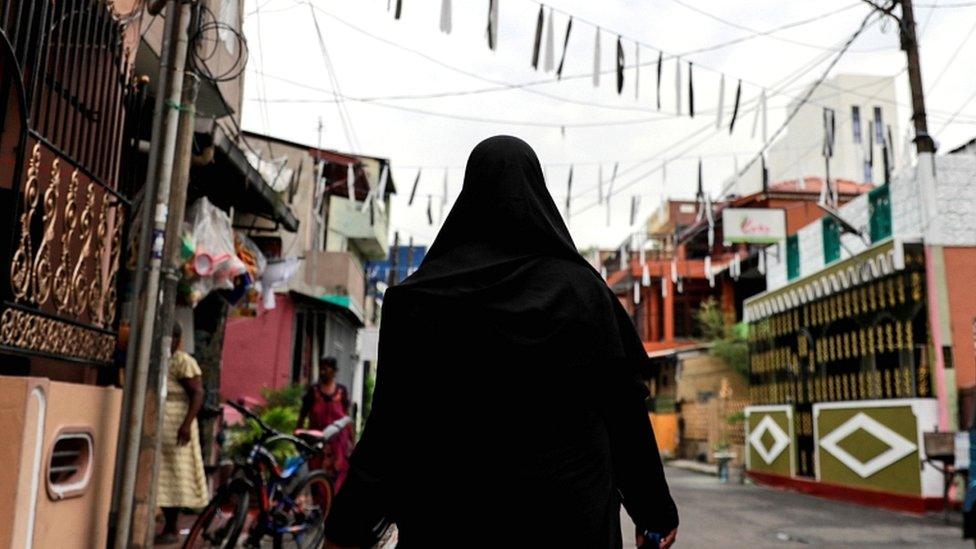
The government says the burka is a sign of religious extremism
Sri Lanka has taken a significant step towards banning the burka and other face coverings in public, on grounds of national security.
Public Security Minister Sarath Weerasekara told the BBC that he had signed a cabinet order which now needs parliamentary approval.
Officials say they expect the ban to be implemented very soon.
The move comes nearly two years after a wave of co-ordinated attacks on hotels and churches on Easter Sunday.
Suicide bombers targeted Catholic churches and tourist hotels, killing more than 250 people in April 2019. The Islamic State militant group said it had carried out the attacks.
As the authorities tracked down the militants, an emergency short-term ban on face coverings was implemented in the majority-Buddhist nation.
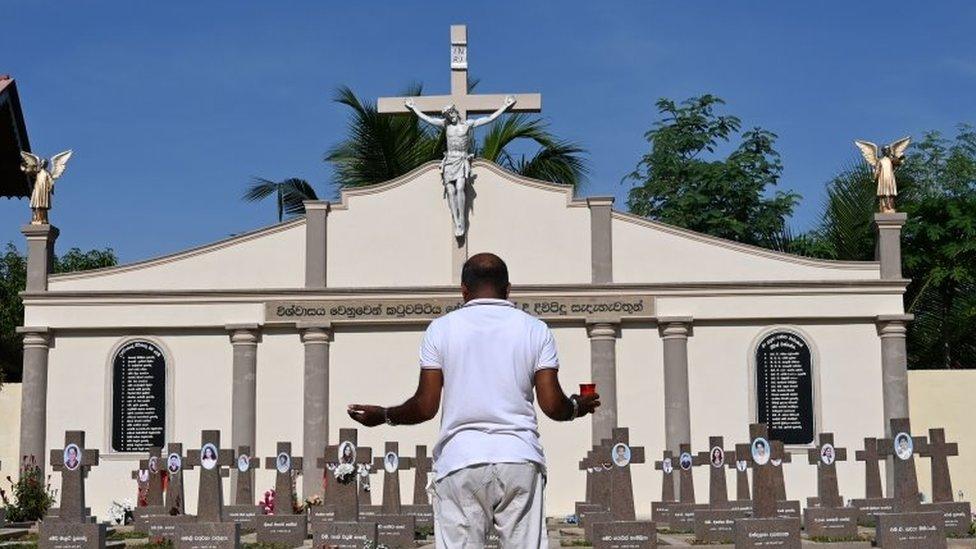
Nearly 270 people were killed in the attacks two years ago
Now the government is moving to re-introduce it on a permanent basis.
Mr Weerasekara told reporters that the burka was "a sign of religious extremism that came about recently". He added that it was "affecting national security" and that a permanent ban was overdue.
"So I have signed that and it will be implemented very soon," he said.
Mr Weerasekara also said the government planned to ban more than 1,000 madrassa Islamic schools which he said were flouting national education policy.


"Nobody can open a school and teach whatever you want to the children. It must be as per the government laid down education policy.
Most of unregistered schools "teach only the Arabic language and the Koran, so that is bad", he said.
Hilmi Ahmed, vice-president of the Muslim Council of Sri Lanka, told the BBC that if officials have problems identifying people in burkas "there would not be any objection from anyone to remove the face cover for identity purposes".
He said everyone had a right to wear a face covering regardless of their faith:"That has to be seen from a rights point of view, and not just a religious point of view."
On the question of madrassas, Mr Ahmed stressed that the vast majority of Muslim schools were registered with the government:
"There may be... about 5% which have not adhered to the regulations and of course action can be taken against them," he said.
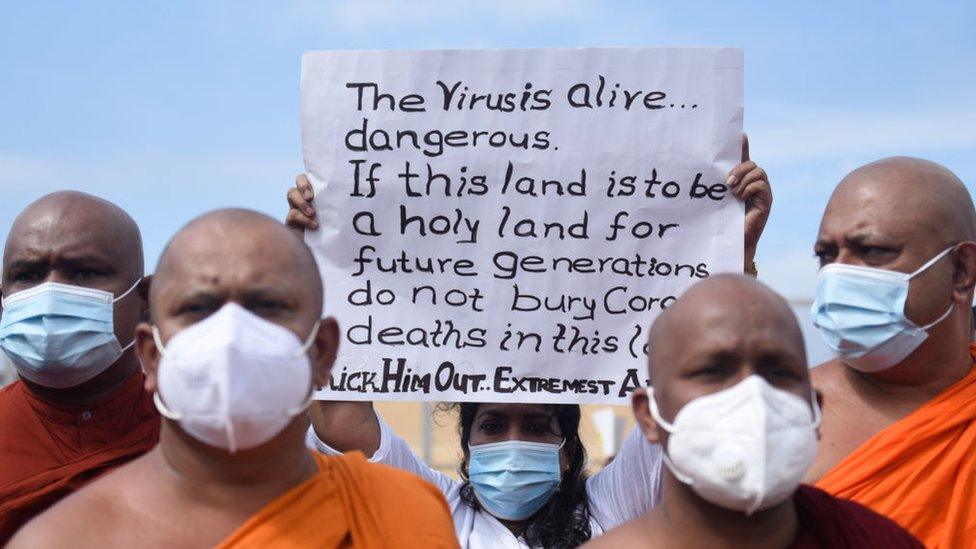
Pro-government demonstrators supported the ban on burials
The government's planned moves follow an order last year making the cremation of Covid-19 victims mandatory, in line with the practice of the majority Buddhists, but against the wishes of Muslims, who bury their dead.
This ban was lifted earlier this year after criticism from the US and international rights groups.
Last month, the United National Human Rights Council session considered a new resolution on mounting rights concerns in Sri Lanka, including over the treatment of Muslims.
In 2019, Sri Lanka's president said IS "chose Sri Lanka to show they exist"
Sri Lanka is being called to hold human rights abusers to account and to deliver justice to victims of its 26-year-old civil war.
The 1983-2009 conflict killed at least 100,000 people, mostly civilians from the minority Tamil community.
Sri Lanka has strongly denied the allegations and has asked member countries not to support the resolution.
Related topics
- Published2 March 2021
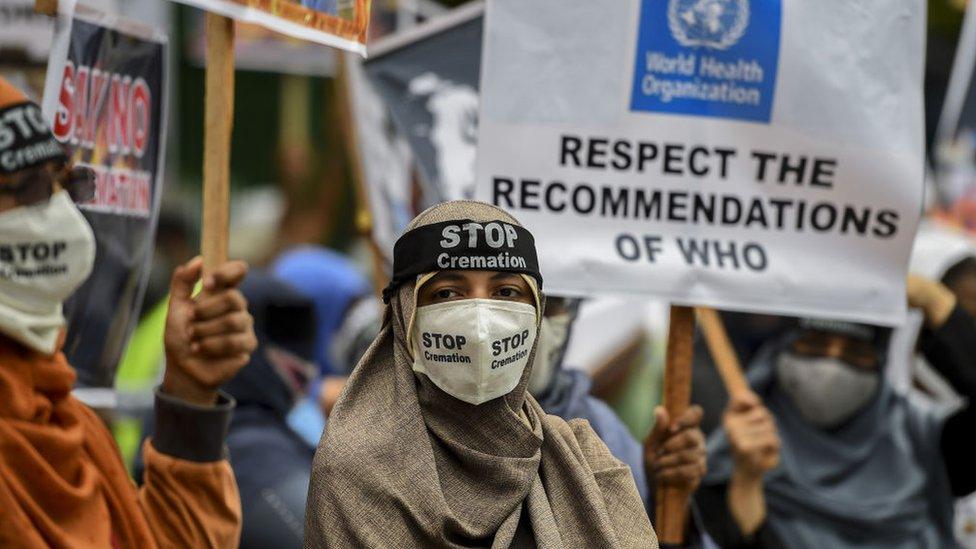
- Published26 December 2020
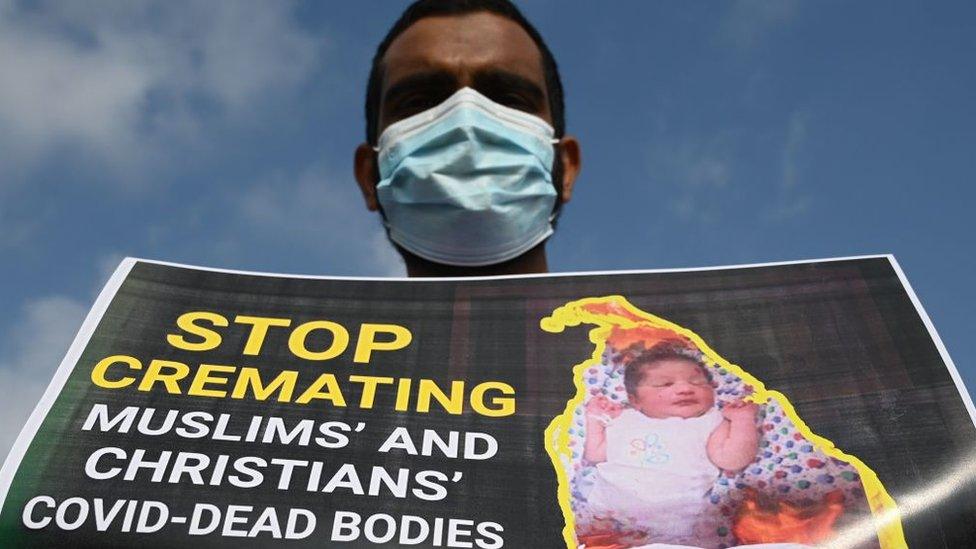
- Published26 February 2021
